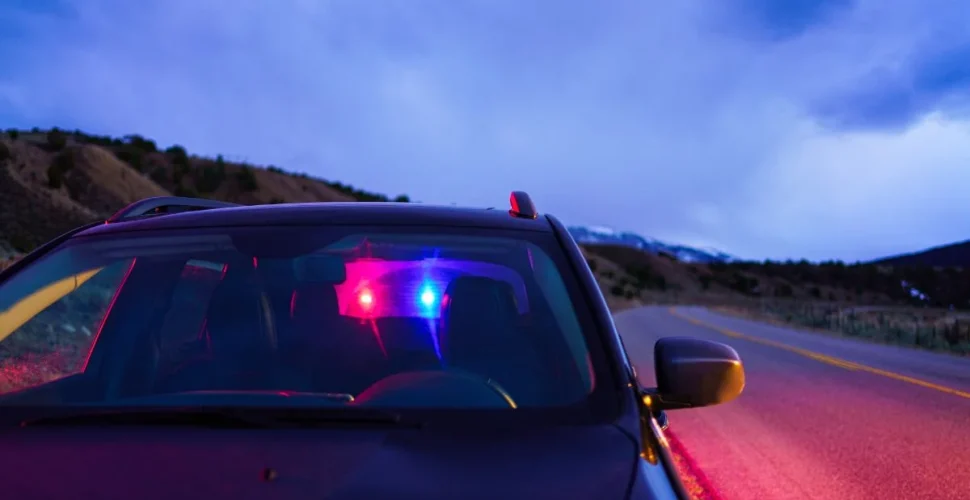|
|
Last Modified on Jul 07, 2025
Wondering about Field Sobriety Tests in Nevada County? At The Law Office of Jennifer Granger, we’ve help clients navigate these exact challenges – the confusing instructions (officers often rush through them), the subjective interpretations, and them nerve-wracking moments when you’re not even sure what they’re looking for.
Let’s cut to the chase. Our team knows how these tests should’ve been administered – and our experienced DUI lawyers in Nevada County can spot mistakes if any occurred.
Key Takeaways:
- Field sobriety tests in Nevada County follow standardized protocols established by the National Highway Traffic Safety Administration
- You have the right to politely decline field sobriety tests, but this may trigger implied consent consequences
- Medical conditions, medications, and even footwear can affect test performance and validity
- Body camera footage of test administration is crucial evidence that can be requested for your defense
- Nevada County follows California state law for DUI penalties, which were updated in 2024
Navigating Field Sobriety Tests in Nevada County
Let me tell you about field sobriety tests. Been explaining these for years now.
So here’s the deal with field sobriety tests in Nevada County – they’re those physical and mental challenges officers use when they suspect you’ve had a few too many. Understanding sobriety tests isn’t just some academic exercise. It’s about knowing your actual rights when those red and blue lights start flashing behind you. Because let me tell you, what happens in those first few minutes can absolutely affect your case down the line.
Look, Nevada County isn’t special in how they conduct these tests – they follow California state protocols. But knowing the specifics? That’s what separates people who protect themselves from people who… well, don’t.
According to the California DMV, officers must have reasonable suspicion to initiate a traffic stop that leads to sobriety testing.
Overview of Field Sobriety Tests
OKAY SO THESE TESTS. They’re designed to check your balance. Your attention. Your ability to follow instructions. Basic coordination. Whether you can do multiple things at once. All skills that alcohol messes with! Field sobriety tests give officers “probable cause” they need for an arrest. That’s the whole point.
Standardized field sobriety tests are the ones that actually matter in court. Because they’ve been validated through research. Have specific scoring methods. Follow established protocols. The National Highway Traffic Safety Administration (NHTSA) developed these tests back in the 1970s, and they’ve been refined since then.
But here’s where it gets tricky… these tests aren’t perfect. Far from it. They’re subjective. Depend on proper administration. And numerous factors can affect performance that have NOTHING to do with intoxication.
You need to understand – these aren’t just random activities. They’re evidence-gathering tools designed to build a case against you. Officers are trained to look for specific clues that indicate impairment, and they’re documenting everything you do and say during this process.
The California Highway Patrol conducts regular DUI checkpoints throughout Nevada County and trains officers in standardized testing procedures.
Types of Sobriety Tests Administered in Nevada County
Officers typically rely on three standardized tests that are considered most reliable by courts. The horizontal gaze nystagmus test is the one where they check your eye movements – looking for that involuntary jerking when your eyes gaze to the side. It’s actually the most scientifically valid of all the tests, with the highest correlation to blood alcohol concentration.
The walk-and-turn test? That’s where you take nine heel-to-toe steps along a straight line, turn using small steps, and walk back. Sounds simple, but officers are watching for very specific indicators like: starting before instructions are finished, failing to touch heel-to-toe, stepping off the line, using arms for balance, making an improper turn, or taking the wrong number of steps.
And then there’s the one-leg stand test, where you’re asked to stand on one foot while counting aloud for 30 seconds. Officers are looking for swaying, using arms to balance, hopping, or putting your foot down.
Non-Standardized Tests
Some officers might also use non-standardized tests like:
- Reciting the alphabet
- Counting backward
- Finger-to-nose test
- Rhomberg balance test (tilting head back with eyes closed)
These aren’t validated by NHTSA and are more easily challenged in court.
Real talk – these tests are designed for people to fail. Even sober individuals often perform poorly due to nervousness, physical limitations, or environmental conditions like uneven pavement or poor lighting.
The National Highway Traffic Safety Administration provides detailed guidelines on how these tests should be properly administered.
Your Rights and the DUI Arrest Process in Nevada County
Let’s talk about your rights during a DUI stop. You always have the right to remain silent beyond providing your license, registration, and insurance. You actually have the right to refuse field sobriety tests in California. This surprises most people! The tests are voluntary. The officer probably won’t tell you that. (They’re not required to.)
But.
Refusing tests has consequences. Under California’s implied consent law, refusing chemical tests after arrest (breath, blood, urine) results in automatic license suspension. This is separate from criminal penalties.
The Arrest Process
If you’re arrested, the process typically unfolds like this: You’ll be transported to the station for chemical testing. Your vehicle might be impounded. You’ll be booked, possibly held until sober, then either released or held for arraignment. Your license will be confiscated and you’ll receive a temporary driving permit valid for 30 days. You have only 10 DAYS to request a DMV hearing to contest your license suspension.
Understanding implied consent laws is crucial – when you got your driver’s license, you essentially agreed to submit to chemical testing if lawfully arrested for DUI. There’s no talking your way out of this one.
Many people don’t realize they have the right to request an independent blood test after submitting to the mandatory test. This can be important if you believe the police test was inaccurate.
USA.gov’s Know Your Rights resource provides comprehensive information about your constitutional protections during police encounters.
DUI Laws and Penalties Specific to Nevada County
Nevada County DUI penalties follow California state law. Standard BAC limit is 0.08% for regular drivers, 0.04% for commercial drivers, and any detectable amount for drivers under 21.
First Offense Penalties
First offense? Expect:
- Fines between $390-$1,000 plus penalty assessments that can triple the base fine
- Up to 6 months in county jail (rarely imposed for first offenders without aggravating factors)
- 4-month license suspension (convertible to restricted license after 30 days with ignition interlock device installation)
- Required DUI school (3 months for standard first offense)
- 3-5 years of informal probation
Chemical Test Refusal Consequences
Refusing a chemical test after arrest adds mandatory license suspension periods on top of other penalties – typically 1 year for a first refusal, 2 years for a second, and 3 years for a third. No restricted license option available for refusals.
The consequences escalate DRAMATICALLY for repeat offenses, high BAC levels (0.15% or above), or DUIs involving accidents or injuries.
Nevada County has its own specific court procedures for DUI cases, and cases are typically heard at the Nevada County Superior Court in Nevada City or Truckee, depending on where the arrest occurred.
I cannot stress this enough – DUI convictions have long-lasting impacts beyond legal penalties: insurance increases, professional license issues, employment difficulties, and immigration consequences for non-citizens.
The California Legislative Information website contains the full text of California’s DUI laws, including those applicable in Nevada County.
Frequently Asked Questions
Q. How do standardized field sobriety tests differ from chemical tests?
A. Look, they’re completely different animals. Field sobriety tests check physical coordination and mental abilities – balance, following directions, that sort of thing. Totally subjective and officer-interpreted. Chemical tests actually measure the alcohol or drugs in your system – breathalyzers, blood tests, urine samples. These give you numerical values that can be compared against legal limits. Field tests are preliminary and can’t tell you your BAC. They’re just used to establish probable cause for arrest, while chemical tests provide the evidence that’ll actually convict you in court. One’s about how you seem, the other’s about what’s actually in your bloodstream.
Q. How accurate are field sobriety tests compared to breathalyzer tests?
A. Not really comparable. Field sobriety tests are subjective and have accuracy rates between 65-77% even under perfect conditions. That’s why they’re just probable cause tools. Breathalyzers give you actual numbers but still have a margin of error of about ±0.01%. Blood tests are way more reliable than either – they’re the gold standard. You’ll never get a perfect measure from roadside tests.
Q. What factors can influence the results of sobriety tests?
A. So many things. Medical conditions, obviously. Neurological issues. Inner ear problems. Bad knees or back. Obesity. Age. Exhaustion. Anxiety around police. Poor lighting. Uneven pavement. Weather conditions. Inappropriate footwear – try doing heel-to-toe in high heels! Certain medications. Language barriers. Prior injuries.
Q. How can I challenge the administration or validity of a field sobriety test?
A. First thing you need is the body camera footage – absolutely essential. You’ll be looking for procedural errors like improper instructions or demonstration by the officer. Did they conduct the test on an uneven surface? Was it raining? Were you wearing completely inappropriate shoes? Medical conditions are huge here – documented disabilities, injuries, or health issues that would affect performance. Your attorney should also check if the officer’s certified in NHTSA standards and followed them correctly.
Q. What resources are available if I need legal assistance for a DUI charge?
A. You don’t just “need legal assistance” – you need a specialized DUI attorney! This isn’t traffic court. Nevada County Bar Association can refer you. Public defender if you qualify financially. But seriously, find someone who specifically handles DUI cases regularly, not your cousin’s divorce lawyer. The Nevada County Superior Court website has self-help resources too, but don’t try to DIY this.
Q. Can field sobriety test results be thrown out in court?
A. Depends on the circumstances. If the officer didn’t follow proper administration protocols? Yes. If they lacked reasonable suspicion for the initial stop? Absolutely. Medical conditions that weren’t accommodated? Good chance. No single field sobriety test is 100% required for conviction. Judges in Nevada County vary in how much weight they give these tests. You’ll need an attorney to file the right suppression motions.
Q. What’s the most reliable field sobriety test?
A. Horizontal gaze nystagmus. Period. It’s the eye test where they check for involuntary jerking. Hardest to fake, most scientific basis, about 77% accurate when done right. Walk-and-turn is next at 68% accuracy. One-leg stand? Only about 65% accurate. All these numbers assume perfect administration in ideal conditions, which almost never happens on the roadside at night.
Here’s the bottom line: Field Sobriety Tests in Nevada County aren’t something to face unprepared. Don’t wait until the DMV hearing deadline’s approaching, these tests are often more subjective than they’re presented. If you’ve been asked to perform or already failed… Contact us online today to discuss your California FST situation today.





